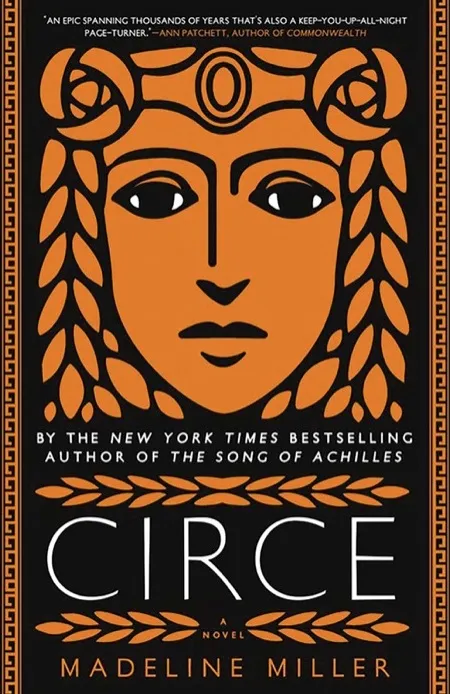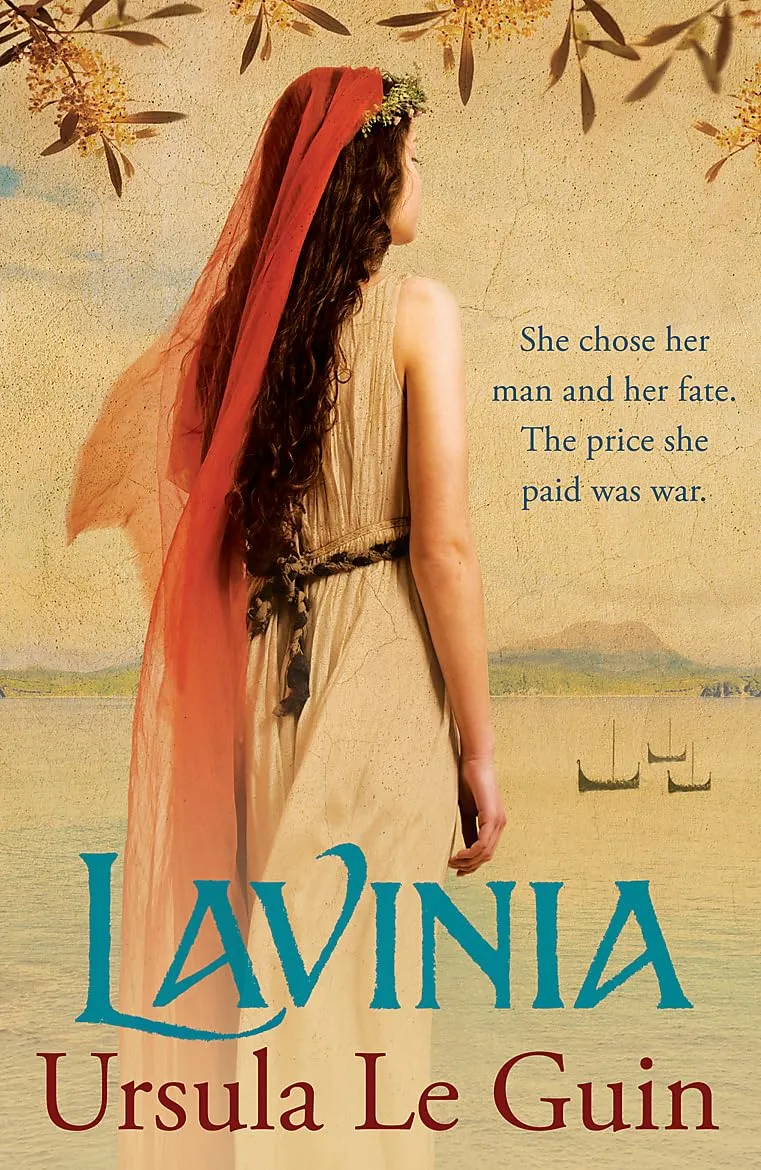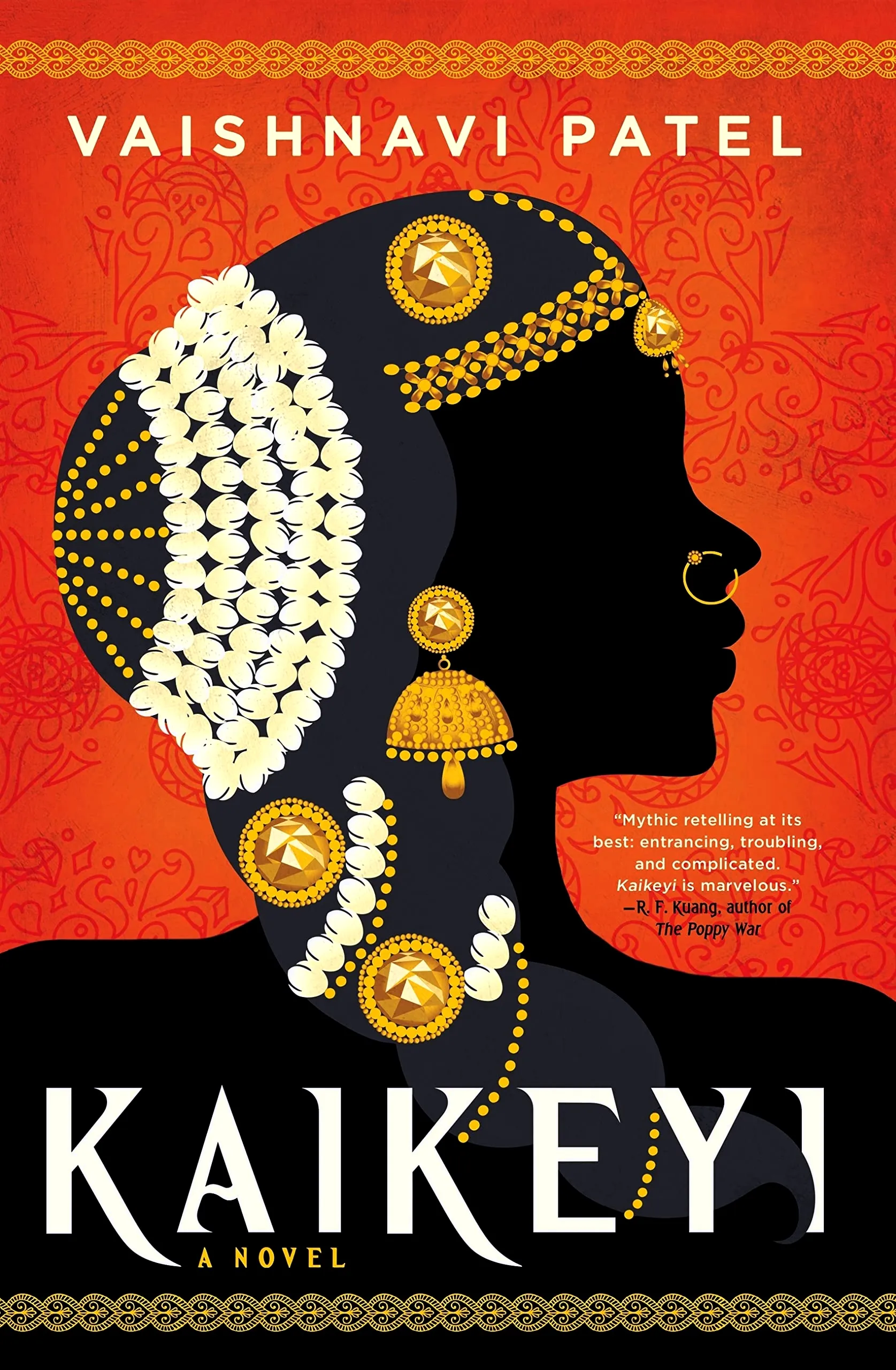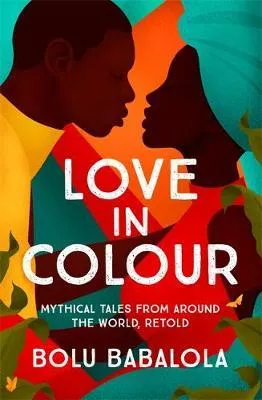
The Gods Should Be Kicked in the Teeth: A Journey through Feminist Mythology Retellings
TW: mentions of sexual assault
Picture it: San Diego. 2018. It was a fine April day and I was shelving books at the indie bookshop where I worked when my phone vibrated in my back pocket with a notification from the Book Riot Slack. I opened up the mobile app and combed through a ton of excited (and confused) messages before I finally figured out what so many others already knew: the hardcover—yeah, hardcover!—of Madeline Miller’s Circe was available for preorder on Amazon for $2.79.
The TL:DR summary here is that former Book Riot Contributing Editor Rincey Abraham Davis had mentioned looking forward to reading Circe in an Instagram post, and then a follower pointed out this weirdly discounted pre-order price. Rincey then brought that piece of info over to one of the Book Riot Slack channels and all manner of book nerdery ensued. It was almost certainly a mistake for a hardcover of such a highly anticipated literary fiction release to be listed for three bucks, but a whole bunch of people nabbed the book at that price before someone got wise to the sitch and changed it. You can listen to Jeff and Jenn discuss the whole thing on an episode of the Book Riot podcast.
This kerfuffle over the pricing of Circe reminded me that I’d guilted my boss, the bookstore owner, into giving me his advanced reader copy a few weeks prior, which I wanted to read more because it was about a witch than because of the mythology. I’d been a nerd for the Greek and Roman myths since I was a kid (I used to list Troy starring Brad Pitt as Achilles as one of my favorite movies, judge me if you like), but I hadn’t yet discovered my penchant for a well-written myth retelling.
Obviously, they existed: tons of titles in our own roundups of classical mythology retellings and retellings of myths, folklore, and classics were published before Circe was even a twinkle in Madeline Miller’s eye. But it does seem like Circe helped herald in a new, or at least more persistent, wave of a particular kind of feminist mythology retelling. I challenged myself to jot down as many feminist retellings as I could in two minutes without consulting any source besides my little grey cells. I came up with 14 without breaking a sweat. So yeah, I’m gonna go ahead and call that a wave.
I’ve read so many of these retellings that Book Riot folks just drop an Edelweiss link in my DMs when a new one is announced. I think Liberty leaves mythology retellings for me when we pick which books to talk about on All the Books because I won’t shut up about them. The honest truth is that I’ve loved a great many of them, but there are ones that stand out. The ones that do tend to have a few things in common.
The Silenced Get to Speak
The giving of a voice to the voiceless is one of the more obvious hallmarks of this wave of feminist mythology retellings, one that works best for me when the story we’re presented with isn’t just a fleshing out of a story we know, but one that allows us to connect with the voiceless and confront the implications of their silence. I loved Lavinia by Ursula K. Le Guin, whose titular character never speaks a word in Virgil’s Aeneid but is this delightful, pragmatic heroine in Le Guin’s hands. I went into Pat Barker’s The Silence of the Girls expecting some of those same vibes (my fault entirely) and what I got was a rude awakening.
Set during the final weeks of the Trojan War, Barker hands the mic in this story over to Briseis, Achilles’ concubine, and the other silenced women of the Iliad, daring you to try and look away. We all know women tend to get a raw deal in mythology overall, but Barker makes sure you confront that fact and sit with the discomfort of how little consideration we’ve historically given to how the women in these beloved epics fared. Speaking of Briseis alone, she was once a queen but has now been handed over to Achilles as a prize. Her sole purpose is to wait around in a tent ready to submit to the sexual desires of the man responsible for sacking her city and slaughtering her family. In the hands of a less capable writer, the depictions of this violence might have felt gratuitous and there for shock value. That’s not what Barker’s passages read like to me; instead they grabbed me by the face and asked what the hell I thought was happening to women like Briseis if not this. We as readers are forced to look at the heroes of these stories in a different light, perhaps most especially the ones we’ve thought of as the good guys.
More like this: A Thousand Ships by Natalie Haynes (we hear from all of the women on both sides of the Trojan war. Spoiler: there are no winners), Ithaca by Claire North (another one where we hear from lots of women, primarily Penelope of Ithaca, similar to A Thousand Ships but different in tone)
The “You’re Wrong About” Treatment
I am a huge sucker for books, films, podcasts, etc that unpack a narrative we’ve all gotten a little (or a lotta) bit wrong, whether due to mishandling by the media or just a historical game of telephone. That’s why I love the podcast You’re Wrong About so much—it turns out I’m wrong about a whole lot of shit!
It also turns out I like when a feminist retelling pulls a “you’re wrong about” in fleshing out a woman’s story, which might sound like the same thing as giving a voice to the silenced but isn’t necessarily. Take stories like that of Elphaba in Gregory Maguire’s Wicked, or Angelina Jolie’s portrayal of Maleficent in the movie of the same name. These stories take the narrative of a maligned woman and go “nuh uh uh, not so fast.” When mythology retellings do this with a feminist lens pointed at a woman we’ve only known as a villain, it’s my catnip.
This is where Circe absolutely shines for me.
Madeline Miller takes the Circe from Homer’s Odyssey and asks us to pull up a chair while she tells us what really went down. Circe uses her burgeoning powers and some super secret magical herbs to turn the fisherman who’s the object of her affection into a god, who then has the nerve to ditch her for the nymph Scylla. Circe goes full “ring the alarm / I been through this too long / but I’ll be damned if I see another chick on your arm” and uses the magic herbs again, this time to make a sap that’s “only” supposed to make Scylla as ugly on the outside as Circe perceives her to be on the inside. That, dear reader, is how the six-headed scourge of the sea version of Scylla came to be and is also what gets Circe banished by Helios and Zeus to the island. There she spends centuries studying plants, honing her craft, and receiving visitors, visitors like the sea captain she welcomes into her home only for him to turn around and rape her, and Odysseus who in Miller’s version of things (and Homer’s if we’re being honest) is really kind of a fuck boy.
No longer is Circe reduced to a wily temptress who lures passersby with song and sweetness only to drug them later and turn them into pigs for no other reason than because she bloody well feels like it. Circe is sometimes lonely, rage-filled, and vengeful, both a victim and a villain, and a fierce mother to her child. I love Miller’s Circe precisely because of her multitudes because a character doesn’t need to be pure and flawless for her story to be a feminist one. It’s a real treat to be wrong about Circe, to both know her fierceness and be witness to her mistakes, mistakes that don’t automatically make her the villain we were told she was.
Another recent read that reimagines a villain’s backstory is Kaikeyi by Vaishnavi Patel. It is a breath of fresh air for several reasons, two of them being that this is one of the few feminist myth retellings we have by an author of color and that the myth it retells is one outside of the Greek or Roman tradition. Kaikeyi is a rich, beautiful retelling of the Hindu epic the Rāmāyaṇa in which Kaikeyi is originally the baddie responsible for Rama’s exile. In Patel’s version, we get to know Kaikeyi from childhood through her ascent to the throne. We learn that Kaikeyi possesses a unique ability to see the threads that bind people to one another, and to affect those people’s lives through gentle pulling of said threads. She is forced into a marriage against her will because women = property, but we watch her use her thread magic to become a skilled warrior, a negotiator, a defender of women, and a beloved queen with opinions and agency who challenges societal expectations. Shockingly, this combo of qualities attracts all the haters.
I’ve read some reviews of Kaikeyi, and other stories that give a backstory to a villainous woman, that really take issue with that narrative decision. Sometimes villains are just villains, they say: women should just get to be wicked sometimes because women are allowed to be unlikable. I agree with that premise in general wholeheartedly. But I also emphatically cosign this sentiment from a piece by Vaishnavi Patel for Tor.com wherein she states that “[w]riting narratives that defy the patriarchy means that we must look at the unpopular women and recognize that perhaps they are unsympathetic because of misogynistic expectations — not as an unshakeable condition of their existence.” Yes, villainous women should get to just be wicked sometimes, but I am also deeply interested in stories that interrogate whether those women were ever really wicked in the first place. Sometimes the answer is yes, other times it is no. Go deep into the why and the how and you’ll keep me as a reader.
More like this: The Witch’s Heart by Genevieve Gornichec (Norse mythology, lots of Loki appearances and quite the vengeance arc), Stone Blind by Natalie Haynes (You will root for Medusa, cry for her even, and want to kick the whiny, petulant gods in the teeth).
The Future of Feminist Mythology Retellings
I keep waiting to tire of feminist mythology retellings, and perhaps that day will come sooner than I realize. Really though, I think there is still a whole lot of mythology out there asking to be reimagined and reworked. Like Emma Herdman, editor of Madeleine Miller’s Circe, told The Guardian: “There will always be an appetite for a retelling that offers us a new way into thinking about how we live today, for a retelling that’s beautifully written and has emotional perspicuity.”
The (I hope???) more obvious reason retellings have plenty of room to keep on keepin’ on is that the selection of feminist retellings being published is still sorely lacking in diversity. Give me more retellings by authors of color! There are definitely some good ones out there: Love in Color: Mythical Tales from Around the World Retold by Bolu Babalola has a fantastic retelling of the Psyche and Eros myth, and Never Look Back by Lilliam Rivera as a remix of Orpheus & Eurydice has been on my TBR for years. Kamila Shamsie’s Home Fire is a modern reimagining of Sophocles’ Antigone and won the 2018 Women’s Prize for Fiction. Book Riot’s own Jenn Northington and Sharifah Williams have an anthology of Greek myth reimaginings, Fit for the Gods, coming out in November, and its list of contributors includes Alyssa Cole, Zoraida Córdova, Mia P. Manansala, Suleikha Snyder, Valerie Valdes, and more. But if Natalie Haynes and Jennifer Saint can have multiple myth retellings published in a three-year period each (and I am a fangirl for both of those authors), there must be room for more writers of color at the table, too.
We also need more exploration of myths and traditions that aren’t Greek or Roman. Again, they are out there, but there aren’t enough of them and the ones we have don’t get nearly enough shine. I am still waiting for my Libby hold of Daughter of the Moon Goddess by Sue Lynn Tan to come through, and even though it’s not strictly a retelling, Silvia Moreno-Garcia’s Gods of Jade and Shadow is a delightful adventure through Jazz Age Mexico featuring the Mayan God of Death that I want everyone to read.
Before I leave you with a more complete list of my favorite recent feminist myth retellings, I want to drop in this quote from Circe that I love: “Humbling women seems to me a chief pastime of poets. As if there can be no story unless we crawl and weep.” I raise my glass to the writers whose women get better, fuller, louder stories than this; if you keep on writing them, I’ll keep on reading.
Retelling Rec Lightning Round
- The Children of Jocasta by Natalie Haynes (November 2018) – Classicist Natalie Haynes centers Ismene and Jocasta in a reworking of the Oedipus and Antigone tragedies. You will yell “noooo!” at the pages more than once.
- The Silence of the Girls by Pat Barker (November 2019) – A powerful retelling of the Iliad as told by Briseis, Trojan queen and captive of Achilles. A gut punch you’ll be grateful for.
- The Witch’s Heart by Genevieve Gornichec (February 2021) – Inspired by Norse mythology, the banished witch Angrboda falls in love with trickster Loki and pisses off all the gods. Their three children’s destinies are #complicated. Love me a mythy witch.
- Ariadne by Jennifer Saint (May 2021) – Ariadne—Princess of Crete, daughter of Minos, sister to Phaedra and the Minotaur—defies the gods and risks it all to help Theseus defeat the beast that lurks beneath the Cretan palace. Phaedra gets more of the storyline than I was expecting, and without going into spoilers: just say no to fuck boys.
- Kaikeyi by Vaishnavi Patel (April 2022) – A reimagining of the life of Kaikeyi from the Hindu epic Rāmāyaṇa. The world says “bow down” and she says “lol, no” with more kindness and internal turmoil than anyone deserves from her.
- Ithaca by Claire North (September 2022) – It’s been 17 years since Odysseus set off on his famed journey and everyone wants Penelope to declare him dead, already. We hear from the women of Ithaca in this retelling, both mortal and divine.
- A Thousand Ships by Natalie Haynes (November 2022) – A retelling of the Trojan War as told from the women on both sides. Even on the winning side, the women all lose.
- Stone Blind by Natalie Haynes (February 2023) – Haynes is one of my faves, which you might guess since this is her third entry on this list. Here she presents a very different version of the Medusa story, one that confronts what it means to be monstrous and fits solidly in that “but was she actually wicked or do the men just super suck?” bucket. It is also SO funny. The gods/goddesses are truly the worst.
- Atalanta by Jennifer Saint (May 2023 – US release date) – The huntress Atalanta was left on a mountainside to die for the crime of not being a boy but some bears (yes: bears) step in to raise her. She joins the Argonauts to fight in Artemis’ name as the famed band of heroes go with Jason to fetch the Golden Fleece, but are the goddess’ intentions pure? Probs not.
- Love in Color: Mythical Tales from Around the World Retold by Bolu Babalola (April 2021) – As the title implies, this is a collection of retellings of myths and folklore from around the globe. From a retelling of Yoruba myth reframed as a modern love triangle to fresh takes on Psyche and Eros and A Thousand and One Nights, Babalola centers Black women and love so beautifully. (Bonus: she is a hilarious follow on social media)
The comments section is moderated according to our community guidelines. Please check them out so we can maintain a safe and supportive community of readers!














Leave a comment
Join All Access to add comments.